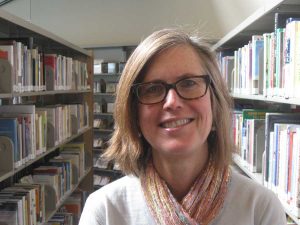 THE FINE ART OF NESTING
THE FINE ART OF NESTING Everyone has a story. Every voice has value. What better time than now to discover yours? We're offering workshops on paper making and kits for bookbinding. ... by Charlie Westerink
Read in Ned | January 11, 2018
By Roberta Brown-Jones
“Profit is the North Star of conventional economics. Lacking a collective destination, the only highway sign we follow is the North Star of profit.” (p. 177)
Since 2017 was a year of political turmoil and climate-related devastation across the planet, I decided that reading an aspirational non-fiction work would be a positive way to start the new year. Muhammad Yunus’s book A World of Three Zeroes: The New Economics of Zero Poverty, Zero Unemployment, and Zero Net Carbon Emissions fit the bill. While the book posits quite lofty goals, Yunus breaks them down so that ordinary people and businesses can ponder them.
Yunus is a Bangladeshi economist who saw extreme poverty in his country and decided to try to remedy the situation. He decided that investing in poor people could help to lift them out of poverty and foster their innate natural entrepreneurship. So, he set up a bank that offers microcredit loans to customers, predominantly poor rural women, wanting to set up small businesses. Despite what most traditional bankers assume, Yunus’s Grameen Bank enjoys a 97 percent repayment rate even though loans are based on trust with no collateral or lawyer involvement. In 2006, Yunus was awarded the Nobel Peace Prize for his work and has taken this initial model to other countries, including the U.S., with similar results.
In order to achieve the three zeroes, Yunus cautions societies to move away from allowing wealth and power to be concentrated in so few hands and warns of the perils of an ever-increasing gap between rich and poor. He believes that the disproportionate influence wealthy people wield severely weakens democratic governments. To counter this, he advocates for the development of more social businesses whose primary goals are to provide societal benefits, not to generate profit. Any profits made are plowed back into programs to help the next set of recipients. His book provides examples of successes serving a variety of causes. Inspired by Yunus, corporations have become involved in setting up social businesses, sometimes alongside their for-profit operations.
While Yunus finds charity and welfare program to be a sign of compassion in capitalist systems, he doesn’t believe that such programs will ultimately provide a solution to the world’s economically disenfranchised populations. Instead, he suggests redesigning the capitalist economic model into one that supports and encourages more creative and entrepreneurial forms of employment. He believes this type of model will better unleash the human potential in all people, not just those lucky enough to have hit the capitalist jackpot.
When profit isn’t the ultimate endgame for human enterprise, creative solutions to persistent problems can be the result. Yunus is a cheerleader for having knowledgeable experts from different fields work with budding entrepreneurs in order to help them bring their ideas to fruition. Yunus likens poor people to bonsai trees, springing from the same seed as full-sized trees but stunted through lack of basic resources. His life’s work is to free people from dependence on the government and to foster more entrepreneurial employment models in place of those dependent upon laboring for wealthy corporations.
Yunus also emphasizes the need for sustainable, clean energy in order to mitigate the disproportionate effect dirty energy has on the poorest of the world’s populations. The pursuit of zero poverty and zero unemployment need not assume that zero net carbon runs counter to the other two goals, as some governments insist. As Yunus notes, dirty growth is unsustainable on environmental as well as economic grounds.
Yunus’s goals ultimately operate on the premise that in order to reach his three zeroes we must reform our capitalistic economic system. Sustainable and fair development goals require populations of people whose objectives aren’t greed based. Also, good governance, kept in line by watchdog activists and strong media, is necessary. In addition, he believes that instead of having trickle-down handouts used to mitigate social problems, technological and other advances should be deployed bottom up initially to address social problems before looking for profit.
My only criticism of A World of Three Zeroes is that it doesn’t address the one zero that, if harnessed, could mitigate many other problems: zero population growth. Overpopulation is a seemingly insurmountable problem, but strong encouragement to limit family size across the economic spectrum could lead to a more sustainable future for all. However, in interviews Yunus has indicated his belief that providing education and increased income levels will naturally lower population growth. Yunus’s book encourages us to cultivate our better selves, and his indomitable drive to better the world should be an inspiration to us all.
 Roberta Brown-Jones is a Library Assistant at the Nederland Community Library.
Roberta Brown-Jones is a Library Assistant at the Nederland Community Library.